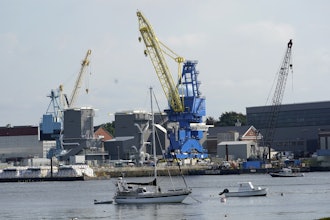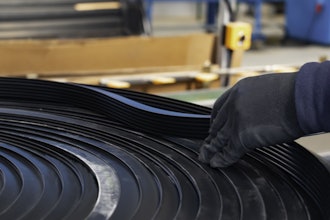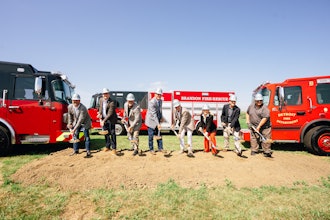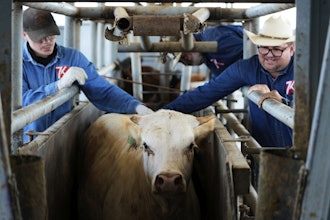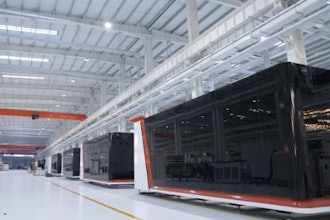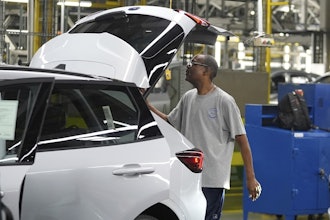
As manufacturing processes become more automated, it is essential for companies to invest in partnerships with local technical schools to maintain a qualified, knowledgeable workforce.
In June 2011, President Obama launched a national effort to revitalize American manufacturing. This private-sector-led initiative, known as the Advanced Manufacturing Partnership (AMP), was designed to “bring together industry, universities and the federal government to chart a course for investing and furthering the development of emerging technologies that will create high quality manufacturing jobs and enhance U.S. global competitiveness.”
An AMP Steering Committee was appointed, and in July 2012, the Committee issued a report with 16 recommendations to help AMP attain its mission. The report included five “workstreams,” or focus areas, each of which the Committee assessed and then made recommendations for improvement. These worksteams included:
- Technology Development
- Shared Infrastructure and Facilities
- Education and Workforce Development
- Policy
- Outreach
Of these workstreams, Education and Workforce Development could be one of the most important to maintaining and improving the U.S. manufacturing industry. One of today’s top concerns in the industry is the “skills gap.” With an aging workforce — and an increasing level of automated equipment — manufacturers are facing a shortage of workers with the technological skills needed to operate advanced machinery.
It is crucial for the industry to partner with local schools in order to develop effective technical programs that ensure students obtain the level of education needed to enter into a successful manufacturing career. Included in the Steering Committee’s Education and Workforce Development report is a recommendation to “develop location-specific curricula to meet the needs of local and regional manufacturers.”
While the AMP continues to work on improving the industry on a national level, some areas of the U.S. are taking the initiative to improve manufacturer-school partnerships on a regional scale. The Northeast Indiana Regional Partnership, a regional economic development team which works with businesses interested in locating to its 10-county region, has developed a number of initiatives designed to develop skilled talent for the manufacturing sector.
Northeast Indiana is a strong manufacturing region home to a variety of industries including food processing, which makes up about 6.6 percent of the region’s manufacturing sector. Food processing is an expanding industry for Northeast Indiana, with employment growing from 3,538 workers in 2001 to 4.547 in 2012.
It is no accident that food processing — and manufacturing as a whole — is growing in Northeast Indiana. In fact, the Partnership has plans in place to ensure manufacturing continues to expand in the region through its efforts to promote technical education targeted to manufacturers’ needs.
One of the Partnership’s projects is The Talent Initiative, which “is working to meet the needs of [manufacturing industries] by increasing the base of highly skilled workers Northeast Indiana has to offer.” Established by a $20 million grant from Lilly Endowment Inc., the program is focused on accelerating technical education and training.
The Talent Initiative includes various strategies to strengthen the region’s workforce, including efforts to enhance the advanced manufacturing program at Ivy Tech, Indiana’s community college system. As part of the initiative, area manufacturers worked with Ivy Tech to purchase new manufacturing equipment to ensure students gain experience working on the same machinery currently used by manufacturers in the region.
Not only does the Partnership seek to enhance manufacturing knowledge at the university level, it also is working to strengthen technical skills at the high school level to prepare students for careers based in science, technology, engineering and mathematics (STEM). Northeast Indiana is home to the largest concentration of STEM-focused New Tech High Schools in the nation.
New Tech High Schools focus on project- and team-based learning, so that students can develop real-world skills they can use in the workplace. Recently, students at Fort Wayne, Indiana’s New Tech Academy designed a more cost-effective package for the local Edy’s Grand Ice Cream facility.
Northeast Indiana’s efforts illustrate the potential success of manufacturer-school partnerships. As new technology continues to permeate the manufacturing industry, it will be more important than ever for companies to find effective ways to secure the skilled talent they need to thrive.
What plans does your company have in place to keep a steady supply of skilled talent? Let me know at [email protected].









